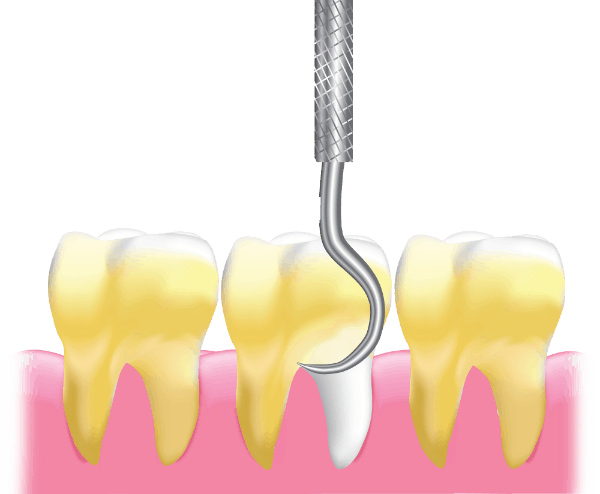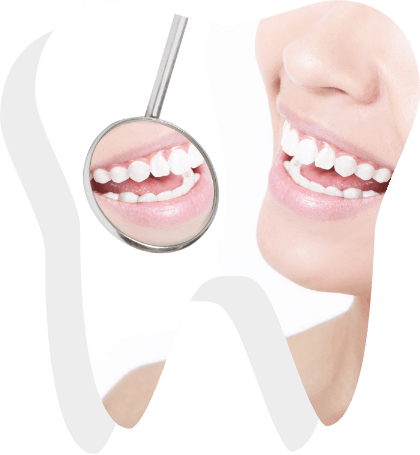Why Should I Scale And Polish My Teeth
Harmful bacteria that can cause tooth decay and gum inflammation live in dental plaque and calculus that accumulate around teeth and under the gums. While plaque can be removed with proper brushing and flossing, some plaque is inevitably left behind and hardens to form calculus which can only be removed with professional dental cleaning.
A basic scaling and polishing will remove plaque, calculus and stain to restore your bright and fresh smile. This process also allows us to better examine your teeth for any more subtle problems like leaky fillings or cracks that may need our attention. If done regularly as recommended, this is a gentle and basic procedure that will only take minutes but go the longest way in keeping your dental health on track.

The Process of Scaling and Polishing

During the routine dental visit, the dentist will first examine your oral condition, followed by scaling and polishing of the teeth.
Scaling is the process of removing plaque and tartar around the teeth and along the gum line using an ultrasonic cleaning instrument. If left to accumulate, plaque and tartar will harbor bacteria that can cause decay and gum disease.
Occasionally, deeper scaling using hand instruments is required to remove tartar attached to the root surfaces of gum diseased-teeth. Doing so will remove the bacteria that live in the gum pockets and encourage the gums to heal. This procedure is called Root-Planing. In such instances, appropriate local anesthetic will be given prior to cleaning to ensure maximum comfort.
After scaling is completed, we then carry out polishing of the teeth to remove external stains and smooth out their surfaces. We can do this either by using a rotating brush with cleaning paste or an air-powder spray for tougher stains. The result of this is clean, smooth and glossy teeth that is easier for you to maintain at home.
FAQs
This depends on the oral health and lifestyle factors that varies with each individual. As a general guideline, we recommend 6 monthly visits unless informed otherwise by the dentist. Some of the reasons that could require more frequent professional cleaning include:
- Smoking
- Diabetes
- Tea/Coffee/Wine staining
- History of gum disease or decay
- Bad breath
Yes! Even dentists have to get scaling and polishing done regularly.
There are simply too many hard to access crevices that plaque can accumulate in before we can remove them by brushing and flossing. Once plaque hardens to form tartar, brushing and flossing will be ineffective at removing them and scaling will be required.
However, thorough brushing and cleaning habits will allow us to complete the scaling and polishing treatment in a shorter time.
The ultrasonic scaler that we use produces a high-pitched sound that might sound scary to many, but it actually is a very gentle device. It comprises of a rounded tip that is vibrating at a frequency that dislodges tartar without harming the teeth. It also sprays a cooling mist of water to wash away the plaque and tartar.
If done regularly, scaling and polishing is supposed to have minimum discomfort. Most people find it painless.
Sometimes, stubborn and deep tartar, sore gums or exposed sensitive surfaces of the teeth can result in pain. If it does get unbearable, local anesthetic can be requested. Depending on the situation, we may even recommend that the cleaning be done over several visits.

